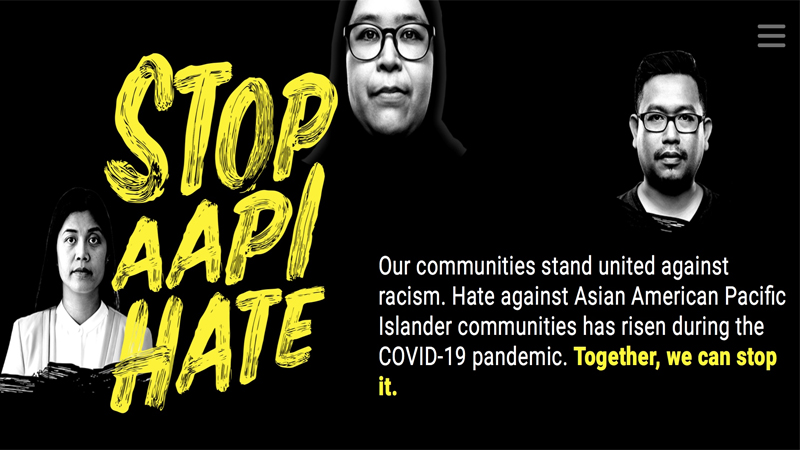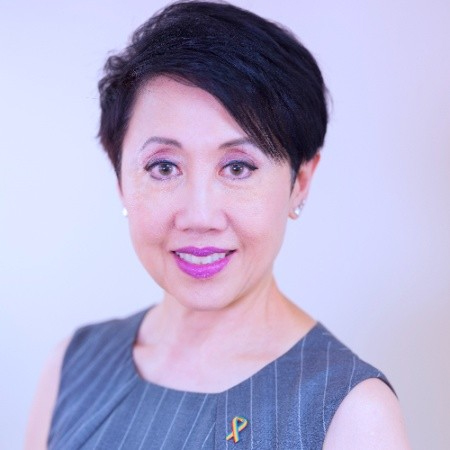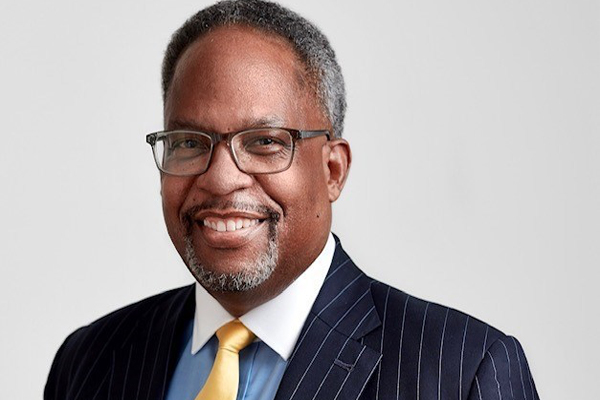By Pepi Sappal
The shocking Atlanta attack this week has resulted in many more CEOs and business leaders speaking out against the rising number unprovoked attacks targeting Asian Americans and Pacific Islanders. Fuelled by the skyrocketing number of Anti-Asian hate crimes in the US, the public – employees and customers – worldwide want corporate leaders to not only condemn the rise in Anti-Asian violence, but actually back up their words of support with real action.
The Anti-Asian hate crimes tracker, Stop AAPI Hate, revealed that around 3,800 incidents of harassment, discrimination and racism were reported over the past year. Around 68% of the abuse was verbal, while 11% was physical. However, the real numbers are thought to be much higher as many go unreported, according to civil rights group Asian Americans Advancing Justice CEO Connie Chung Joe. “There are far more people who have not reported incidents than those who have.” Chung Joe attributes the “underreporting” to a combination of several factors, ranging from language and cultural barriers to a lack of trust in law enforcement. Additionally, not only have Asian American businesses suffered the most as a result of the rising discrimination, it’s also impacting the mental health and wellbeing of many employees of Asian heritage.

A GLOBAL ISSUE
It’s not just the US that has experienced a rise in anti-Asian violence since the start of the pandemic. Countries, such as the UK, South Africa, Russia, Brazil, France and Australia have also reported increasing Anti-Asian crimes, making it a global concern. In fact, nearly 60% of Chinese Australians and Asian-born populations said racism was a ‘very big’ or ‘fairly big’ problem, according to a survey carried out by the Australian Scanlon Foundation. Another study carried out by the Australian National University (ANU) suggests that a whopping 84.5% of Asian Australians have reported experiences of racism or at least one instance of discrimination between January and October in Australia last year amid Covid-19.
The ANU survey also found that Asian Australians were more likely to have their livelihoods adversely affected by Covid-19 and they were more anxious about the pandemic than Australians overall. They saw their working hours drop five hours between February and April – twice the rest of the Australian population (2.4 hours). Although the study’s authors attributed this partly to the fact that “Asian Australians were younger and more likely to live in urban areas and work in industries impacted by lockdowns”, they added that they “could not discount the effect of labour market discrimination”.
INCLUSIVE & EMPATHETIC LEADERSHIP
In the early days of the pandemic, non-profit Community Business raised the issue of rising Anti-Asian sentiment, and urged business leaders to help nip it in the bud. Fern Ngai, CEO of Community Business at the time, expressed deep concern about the global rise in xenophobic attitudes towards people of Asian descent in the wake of the Coronavirus. “During times of crisis, racial stereotyping and distrust of others can become default behaviour. At times like these, the need for inclusive and empathetic leadership is stronger than ever,” stated Ngai. She also provided key measures organisations should consider implementing to ensure the safety and wellbeing of staff, as reported.

Yet, despite the rise in discrimination, organisations have simply not been proactive enough to address discriminatory behaviour against people of Asian descent, according to a survey carried out by the Institute for Corporate Productivity (i4cp). Its survey of diversity and inclusion (D&I) leaders on how organisations identified and addressed discriminatory behaviour towards Asian employees prompted by the pandemic, revealed that nearly half (47%) rely on staff to self-report any problems to HR or D&I. Only 25% of D&I leaders (25%) were proactively engaged in identifying staff concerns through their company’s Asian employee resource groups. And just 20% indicated that their organisations rely on employee resource groups to initiate conversations about discriminatory behaviour towards employees of Asian descent.
MORE REAL SUPPORT NEEDED
In reality, most employers haven’t been providing enough support for employees of Asian or Pacific Island heritage who may be impacted by the recent Anti-Asian crimes or discrimination within their workplace. Although racial discrimination workplace discussions are relatively new, more employees expect their company leaders to speak up about racism, since last year’s racial justice movement (as reported). Diversity and inclusion experts also believe that workplaces have a responsibility to acknowledge the recent wave of anti-Asian violence, as well as the racial trauma experienced by employees of Asian heritage; and the impact on their ability to do their jobs.
Over recent days, an increasing number of CEOs and leaders have stepped forward with statements of support. They include leaders of Airbnb, Accenture, State St, Nike, Adidas, Tommy Hilfiger, Boeing, Yahoo, Capital One, Walmart, Gilead Science, and many more. But words of support are not enough, according to staff and experts. Corporate leaders must now back their words of support with action. The Executive Leadership Council’s Michael C Hyter, President and CEO, who described the reprehensible attacks faced by the Asian American community as “heartbreaking”, believes business leaders must use their “power and resources to support and empower our Asian American colleagues and friends” to “put an end to these hate crimes.”

ACTION TO BACK WORDS OF SUPPORT
Organizational Solutions’ Diversity champion and speaker Sonia Aranza agrees. She also wants to see more action to back up words of CEO support. “Zero policy against hate must be backed by action including the expulsion of workers who are proven to participate in acts of hate,” Aranza stated. “While microaggressions are more difficult to prove, business leaders must provide psychological safety in the workplace, remote or in-person, so Asian colleagues can share their experiences. Business leaders must also simplify the process of reporting incidents without fear of retribution. In addition, business leaders must empower other workers to report incidents when they witness them.”

Companies like Walmart are doing just that, confirmed its Senior Director of the Global Office of Culture, Diversity, Equity & Inclusion Donald Fan. “We believe it starts with open and courageous conversations to raise awareness, stand up together with zero-tolerance non-inclusive behaviours, and systemically prevent it from occurring.”
Walmart has had its “Harassment and Discrimination Prevention Policy for years”, pointed out Fan. “Violation results in disciplinary action with management bonus reduced by up to 100% or termination.” Additionally, Walmart is also “engaging in campaigns to denounce and mitigate these unprovoked attacks and hate crimes such as our internal hashtag campaign #WashTheHate, initiated by SVP Chief Culture, Diversity, Equity & Inclusion officer Ben-Saba Hasan”, added Fan.

PROVIDING SAFE SPACES FOR DIALOGUE
Findings from the Institute for Corporate Productivity suggests that leaders and DE&I/HR need to introduce processes to identify discriminatory behaviour towards Asian employees (on or off the job), and provide a safe space for them to talk about the issues they face. There are now signs that more companies have started to do just that. “We know many of our associates who identify as API are feeling the emotional burden caused by these recent events. We are creating safe spaces for dialogue and listening; and advocating on behalf of those who need our support,” highlighted Capital One’s Managing Vice President, Global Diversity, Inclusion and Belonging, Rolddy Leyva.
In a message to staff on violence against Asian-Americans and Pacific Islanders just today, Daniel O’Day, Chairman and Chief Executive Officer of Gilead Sciences, made it clear that not only is the company “firmly against violence, racism and discrimination of any kind”; but it’s “also committed to action”. “We have been in touch with a number of mayors in Los Angeles and in the Bay Area over the past weeks to call for action, and discuss how we might work together to curb the rising violence against the AAPI community. In addition, we are supporting several organisations that are working to combat hate crimes,” he explained.
O’Day added that members of the Gilead Leadership Team “will work closely with GAIN, the Gilead Asian Interest Network, to discuss how we can best support our AAPI employees at this time”. “We can all play a part within our own Kite and Gilead communities by showing empathy to our AAPI co-workers and continuing to shape an environment where all individuals feel safe and included,” he noted.

TIMELY ADVICE TO #STOPASIANHATE
It’s not just up to leaders, however, to stop the hate. Every individual must play their part. Capital One’s Vice President of Data Science and National Lead, Yi-Chen Tu, provides timely advice on how employees can do that. Tu says workers and leaders can help #StopAsianHate by:
- Becoming An Ally: Educate yourself about what’s happening, and the supportive steps you can take. This may include understanding the implication of how the Covid-19 pandemic can affect racial bias.
- Being An Upstander: When you see something, say something. That means standing up as an “upstander” rather than standing by as a “bystander.” This may include learning to confront and call out racism.
- Fostering Open Dialogue: Create safe spaces for honest dialogue. This may include checking in with colleagues/employees during difficult times and having courageous, clear conversations.
There are lots of things that organisations can implement quickly and effectively, from opening new lines of communication, such as web portals or hotlines and facilitate the reporting of hate crimes. Experts also recommend providing educational resources on xenophobia and host conversation forums to raise awareness. After all, the actions that companies take now to reaffirm concern and support for employees of Asian descent is not only closely watched by staff and customers of Asian heritage worldwide; but other racially diverse and minority groups, as well as potential recruits and customers. In short, global organisations cannot afford to make empty pledges this time round, let alone stay silent on the matter; particularly given the wealth of advice, help and resources available now.
This is not the first time that CEOs have been urged to speak out racial matters, as reported. See the article below.







































